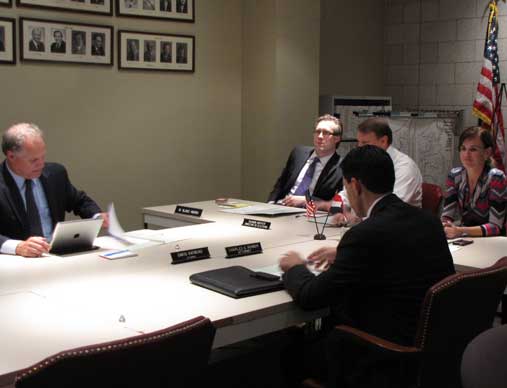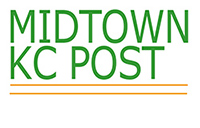
Kansas City election board staff counted and certified votes, then declared the Downtown streetcar had been approved.
Voter approval today of a two-mile streetcar system in Kansas City could be step one toward a rail transit system for all of Jackson County, supporters say.
The 2-mile streetcar system from the River Market to Union Station will cost $100 million and voters in that area will pay for much of it. But they still voted to pass it.
Supporters say that bodes well for plans for a Jackson County one-cent sales tax vote next year that could pay to start commuter rail lines to the east and south that link to the streetcar system.
The streetcar vote will “only be the starting point for an improved regional transit system, and we anticipate this success will lead to the planning of route and system extensions in the near future,” said Tom Gerend, assistant transportation director with the Mid-America Regional Council.
Gerend is involved in planning for county commuter rail lines on existing track. One would run from the River Market, along U.S. 71 Highway corridor into Grandview. Another would run from the market along the I-70 corridor linking cities all the way to Odessa, and the third would run from the market roughly along 350 Highway to Pleasant Hill.
Kite Singleton, chairman of the Regional Transit Alliance, praised the vote today but said streetcar design is not expected to be finished until 2015. And much work still needs to be done on planning for county commuter rail, he said.
The alliance wants the commuter lines to run into Union Station instead of the market area, but that requires very difficult negotiations with railroads, he said. And railroads involved in the market routes are already hard to negotiate with because of long-term uncertainties in their markets, he said.
There is also a question of why so few people voted in the streetcar vote. Election officials said about 4,000 voters were registered and active in the transportation district area, but only 697 wrote in to get ballots.
And of those only 551 filed proper ballots. The sales tax increase passed 351-198 and the property tax increase passed 344-206.
The vote means that an extra cent in sales taxes will be collected within the district.
As for property taxes, the owner of a $200,000 condo there will now have to pay about $250 more a year, said Douglas Stone, attorney for the special benefit district.
A business that owns a $2 million building will have to pay about $3,000 more in property tax, he said.
It was a small vote, supporters said, but a big start.



Who’s talking